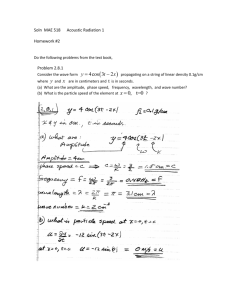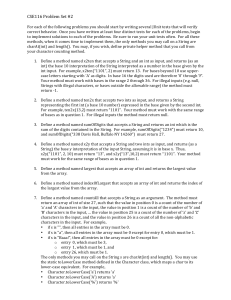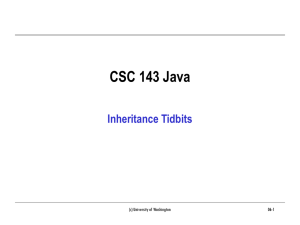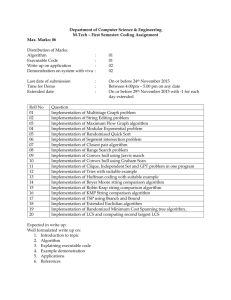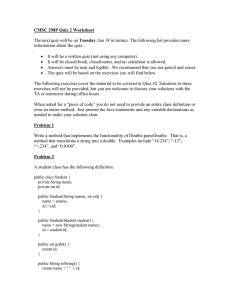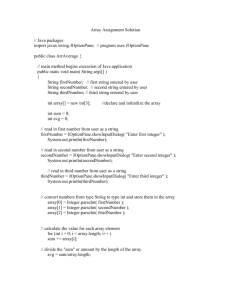Inheritance and Interface Lab
advertisement
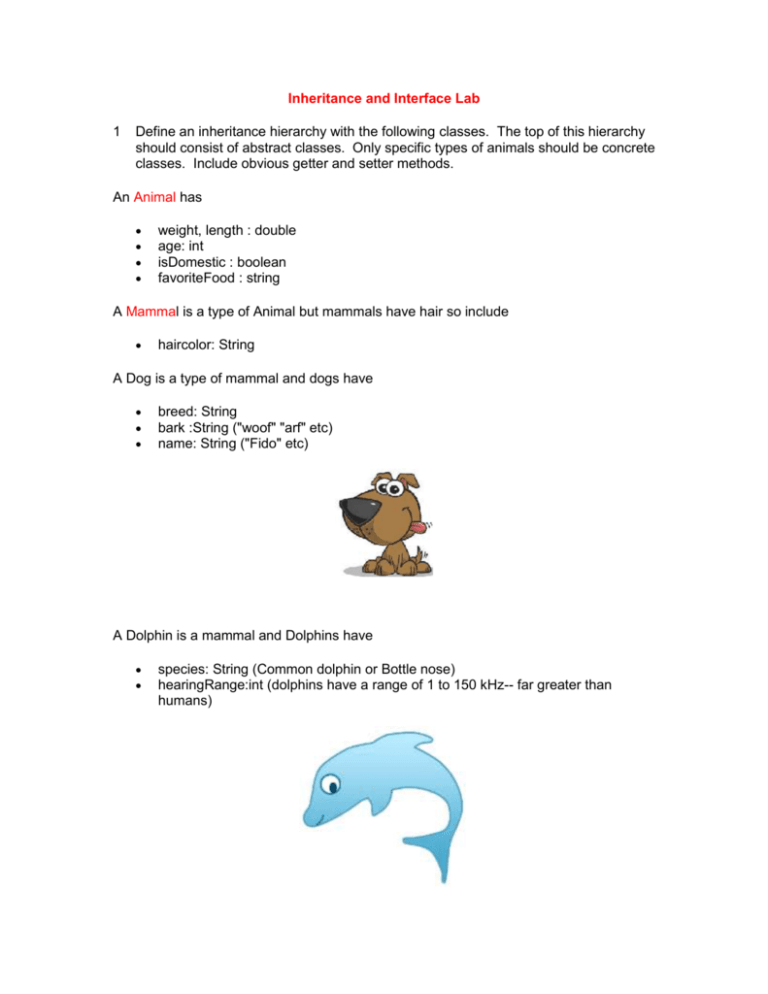
Inheritance and Interface Lab 1 Define an inheritance hierarchy with the following classes. The top of this hierarchy should consist of abstract classes. Only specific types of animals should be concrete classes. Include obvious getter and setter methods. An Animal has weight, length : double age: int isDomestic : boolean favoriteFood : string A Mammal is a type of Animal but mammals have hair so include haircolor: String A Dog is a type of mammal and dogs have breed: String bark :String ("woof" "arf" etc) name: String ("Fido" etc) A Dolphin is a mammal and Dolphins have species: String (Common dolphin or Bottle nose) hearingRange:int (dolphins have a range of 1 to 150 kHz-- far greater than humans) A Reptile is a type of Animal . A reptile has a body temperature : int A Lizard is a type of a reptile. A lizard laysEggs :boolean ( some do, some don't) A snake is a type of reptile. A snake is poisonous: boolean (some are, some aren’t) Your hierarchy should implement: toString()--give the kind of animal and ALL of its characteristics equals(Object o) --two animals of the same type are considered equal if they have the same weight. Implement the Comparable interface and compare objects based on weight Also Define and implement an interface (AnimalInterface) with two methods: 1. boolean awake() 2. void eating() -- Say the critter is eating and mentions favorite food Additionally construct one array of 6 Animals by prompting the user for the specific type of Animal and making an object of that type. Sort the array by weight print the content of the sorted array using toString() print all mammals in the array print all reptiles in the array Lable your output (“all Animals in the array are: ….”) ------------------------------------------------------------------------------------------------ 2. A Simple Inheritance Hierarchy Implement an class Employee such that a member of Employee has a name, an ID number (String), and a salary (int). a. Override toString() -- the returned string should contain all employee information b. Override equals(Object o) -- two employees are equal if they have the same ID number c. getters and setters d. implement the Comparable interface based on ID number--- remember ID i is a String Implement a subclass of Employee, called Manager. A manager is an employee who supervises a department. The record of a manager includes all the information included in a regular employee’s record plus the name of the department he/she supervises. Override toString() for Managers. (Use super) Executive extends Manager. An executive is a manager who gets a bonus at the end of each year equal to a percentage of company profits. Include a field called bonus (double). Implement Executive. You should redefine getSalary() to include the bonus and again override toString() Write another class TestEmployee that take an array of five employees (regular , managers, and executives), sorts by ID and prints the pertinent information for each employee.
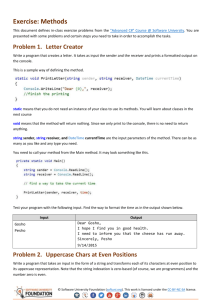
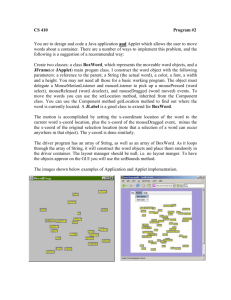
![char[] name - Purdue University](http://s3.studylib.net/store/data/009372567_1-1dcf9c35e4c7b83b043aa8c848d641be-300x300.png)

